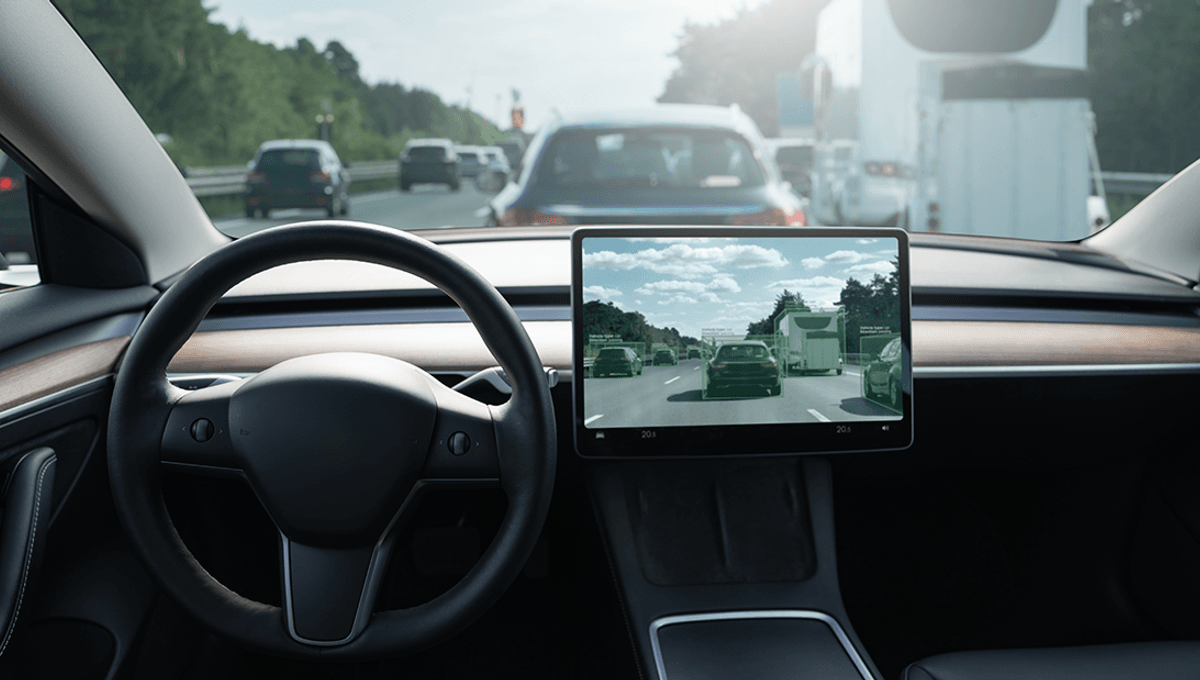
A new study has taken a look at the safety of autonomous vehicles (AVs), finding that while overall, they are better than humans in several routine areas of driving, they are currently not as good as human drivers in low-light situations or turning.
Before we can simply step into our cars and allow them to drive us to our destination, we need to know that they are safe. The hope is that one day they could surpass human driving capabilities. After all, cars do not get tired, cranky at other drivers, or have lapses in concentration while thinking about something else.
Around the world, tests of the technology have taken place, and we have a fairly big pool of data from semi-autonomous systems in vehicles used in real-world traffic situations. In the new study, researchers from the University of Central Florida analyzed data from 2,100 Advanced Driving Systems and Advanced Driver Assistance Systems, as well as accident data from 35,113 human-driven vehicles (HDVs), in an attempt to compare the safety of AVs and HDVs in various situations.
The team found that generally, AVs are safer than human drivers, albeit with several heavy caveats.
“The analysis suggests that accidents of vehicles equipped with Advanced Driving Systems generally have a lower chance of occurring than Human-Driven Vehicles in most of the similar accident scenarios,” the team wrote in their paper.
During routine traffic operations, such as keeping in lane and adjusting to match the flow of traffic, AVs performed better than HDVs, and were involved in fewer accidents during these tasks. Rear-end accidents were 0.5 less likely in AVs, while sideswipe accidents were 0.2 percent less likely.
But humans still have artificial intelligence beat in other traffic situations.
“Based on the model estimation results, it can be concluded that ADS [automatic driving systems] in general are safer than HDVs in most accident scenarios for their object detection and avoidance, precision control, and better decision-making,” the team explained.
“However, the odds ratio of an ADS accident happening under dawn/dusk or turning conditions is 5.250 and 1.988 times higher, respectively, than the probability of an HDV accident occurring under the same conditions. The possible reasons might be a lack of situational awareness in complex driving scenarios and limited driving experience of AV.”
Identifying these key problem areas could help AV researchers improve vehicle performance. An area to focus on right now would be identifying hazards in different light.
“At dawn and dusk, for instance, the sun’s shadows and reflections may confuse sensors, making it hard for them to distinguish between objects and identify potential hazards,” the team wrote. “Furthermore, the fluctuating light conditions can impact the accuracy of object detection and recognition algorithms used by AVs, which can result in false positives or negatives.”
While the study may be disappointing for self-driving fans waiting for the crossover point where AVs become better than human drivers, any improvements to performance can be sent to all AVs at the same time. Should researchers find a way to improve turning, software updates can apply it to vehicles of that type, in a way that we can’t do with humans.
Hopefully one day we will be able to hop in AVs without worrying about turning and changes to light, or other humans on the road getting distracted.
The study is published in Nature Communications.
Source Link: Autonomous Vehicles Are Safe, As Long As You're Not Planning On Turning